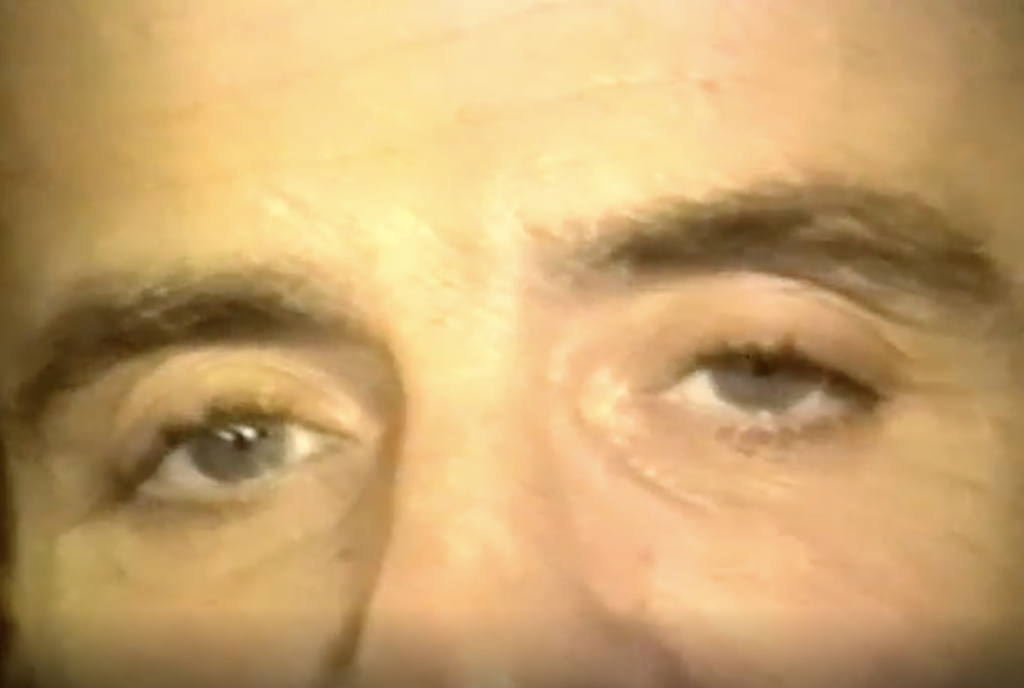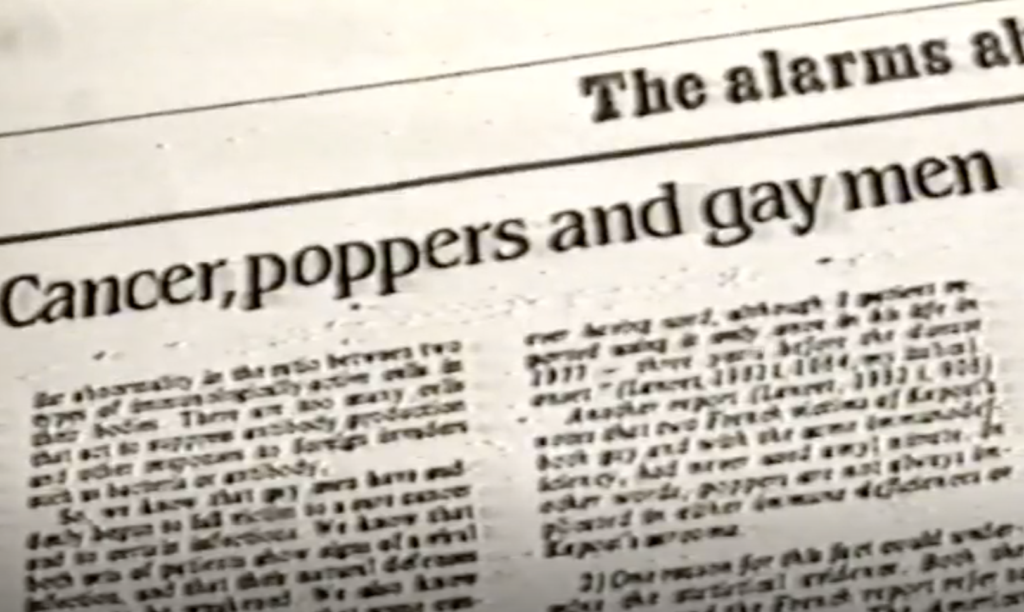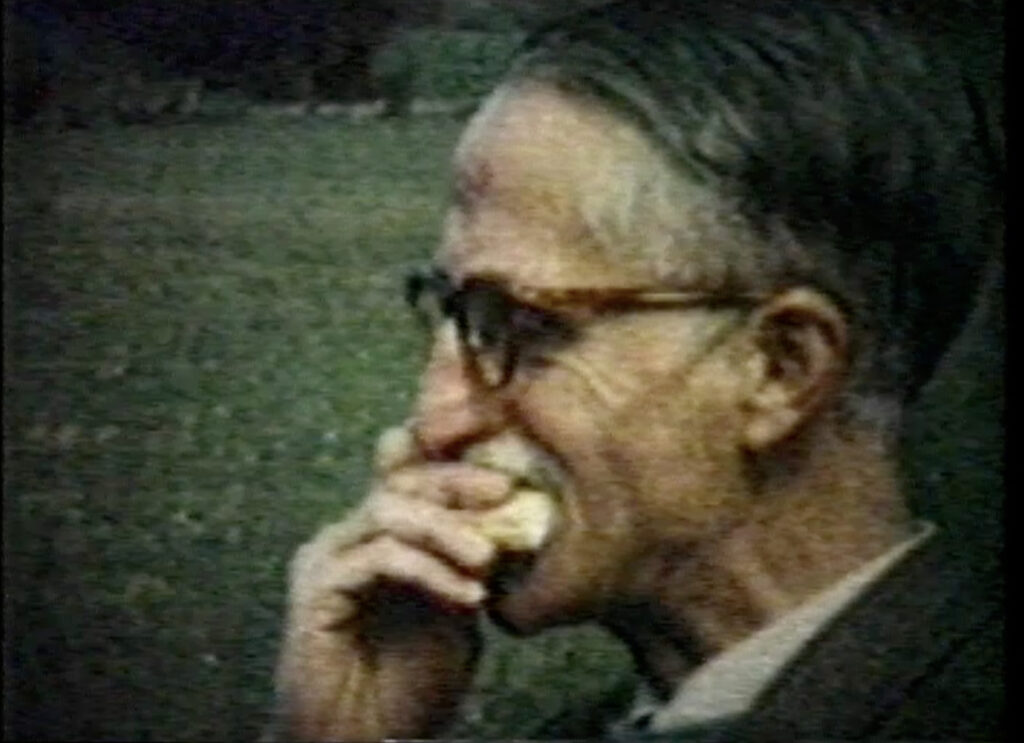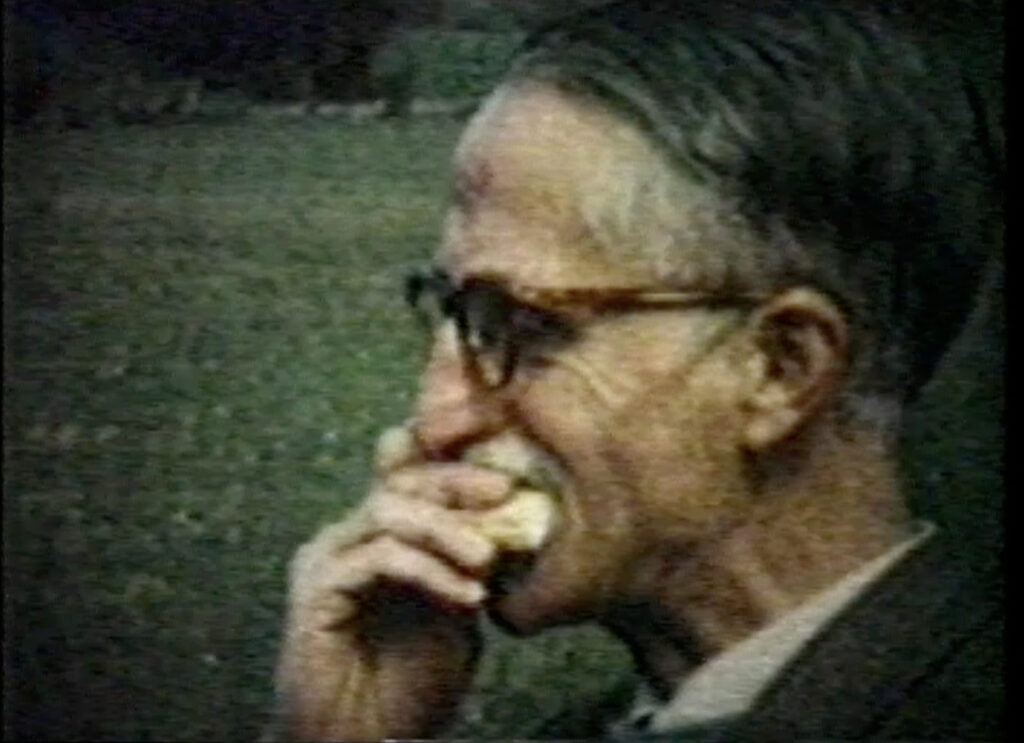Robert Marshall is an autobiographical art-activist AIDS video named for Stuart Marshall’s father, Robert Marshall (1911-1961). Marshall records a trip to visit family on Vancouver Island, British Columbia, where he watches family films of his conventional 1950s Northern English childhood that include his deceased father, Robert. Marshall and his Aunt reflect upon the circumstances of his father’s death, of whom he has little memory. For Marshall, then 11 years old, alone with his ailing father, who suffered a sudden and fatal heart attack. Marshall returns to the scene of his father’s death in suburban Cheshire; conjuring the traumatic scene with video images and on-screen text.
In the second sequence, Marshall, who was involved with the AIDS alternative health support group Positively Healthy, stages his alternative health regimen, revealing that he has been HIV antibody positive since 1986. He gives instruction on immune boosting herbal remedies and attends acupuncture. At the same time, Marshall juxtaposes his treatment with a telephone conversation with a San Francisco MD in HIV/AIDS healthcare on the progression and treatment of the condition. This includes a discussion of Marshall ‘s decision not to take the AIDS medication AZT. The video ends poignantly with father and son drawn into a narrative arc that reflects on heath and wellbeing, mortality and memory, family and community, trauma and grief and the hand of fate.
Robert Marshall was commissioned as part of a residency at Satellite Video Exchange Society/ Video Inn, Vancouver in 1989. This was a period (1989-1991) when Positively Healthy was tied up in litigation between Duncan Campbell, a UK investigative journalist for left liberal newspaper The New Statesman and The Pink Paper, a leading UK LGBTQIA+ newspaper that supported the alternative health group. Marshall, who chose not to take the AIDS medication, AZT, was himself implicated in a series of trumped-up allegations. Yet, he continued to advocate for alternative healthcare choices and increased patient choice for people living with HIV and AIDS. Marshall’s video speaks to an ethics of informed consent, patient dignity and a collective will to survive and thrive that underpinned pre-combination therapies AIDS community healthcare advocacy.








